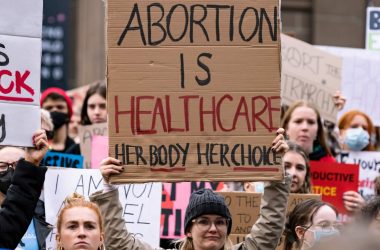CHICAGO, IL—(ENEWSPF)—January 19, 2010. Healthcare reform will give small businesses the ability to offer their employees quality, affordable healthcare coverage while remaining competitive in a challenging economy, U.S. Senator Dick Durbin (D-IL) said today while addressing local business owners at the Chicagoland Chamber of Commerce.
“Small businesses are the backbone of our economy. There won’t be an economic recovery until small businesses start growing again. Despite misinformation to the contrary, healthcare reform will be good for business,” said Durbin. “In the Senate bill, we keep what is best about America’s healthcare system and we fix what is broken, which means building on the employer-based system to not only save lives, but also to save money.”
“I’ve heard from far too many small business owners that they spend hours and even days on the phone now, fighting with insurers to get procedures covered for one of their employees. This is time that could be better spent creating new products or jobs. Healthcare reform will end these kinds of abuses and will prevent insurance companies from placing arbitrary limits on the care they will cover,” Durbin said.
Healthcare affordability for small businesses has long been at the top of Durbin’s agenda. Over recent years, he wrote and then fine-tuned the SHOP (Small Business Health Options Program) bill. Many provisions of SHOP are now included in the healthcare reform bill, including the idea of an exchange with comparison shopping and tax credits for small employers, as well as allowing small businesses to band together and spread the risk over a large number of participants in order to obtain lower premiums.
More than half of all Americans without health insurance are small-business owners, employees, and their dependents and the biggest reason for this coverage gap is cost. Healthcare is one of any employer’s biggest expenses, but small businesses pay, on average, 18 percent more than larger firms for the same health insurance coverage.
Durbin said he’s been approached by many employers and small businesses who have questions and concerns not just about how reform will affect the quality and costs of healthcare in America, but also about what reform will mean for them.
Among the misconceptions about reform is the idea that it will be a job-killer and that small businesses will bear a disproportionate burden. The reality is that today many small businesses have only a few choices when it comes to health coverage because the insurance market is so highly concentrated. The Senate bill includes provisions that make coverage more affordable for businesses that choose to offer health benefits by creating an insurance exchange where small businesses and uninsured individuals will be able to choose from among a variety of private plans and policies, resulting in real choice and real competition. By pooling together, they will be able to create lower rates.
The Senate bill also exempts businesses with 50 or fewer employees from the employer mandate. It also provides tax credits to small businesses that choose to offer health insurance in order to help cover the costs, and contrary to some misinformation, this benefit will begin next year.
According to a health economist at MIT, health insurance reform will save small businesses 25 percent in health insurance premiums over the next decade. That adds up to $65 billion and will allow small businesses to preserve or create 80,000 jobs over the next decade and will increase the take-home pay of workers in small businesses by nearly $30 billion a year.
Another common misconception is that healthcare reform will be too expensive and will balloon the deficit. In fact, the nonpartisan Congressional Budget Office says the reform bill will cut the deficit by $132 billion over the first 10 years, and $1.3 trillion in the second decade. It is the biggest deficit reduction bill Congress has ever considered.
“Think of what we can do if we stop wasting our hard-earned dollars on a system that is failing so many citizens, and invested it elsewhere, especially in small businesses that can create new jobs,” said Durbin.
Source: durbin.senate.gov








